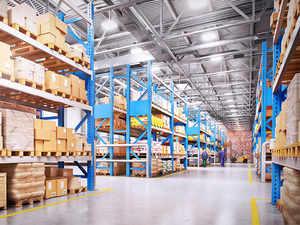
NEW DELHI: India, China, the US, Russia, Canada and five others have sought compensation from the EU and the UK at the World Trade Organisation or WTO alleging that their joint policy to allow a specific quantity of products to be imported at low or zero duty is harming other countries’ exports of agricultural, fish, industrial and processed farm products.
Rejecting the EU and the UK’s claims that no compensation is required as there has been no loss in value of the concessions in the tariff rate quotas (TRQ), the 10 countries asked the two to begin talks to find product and member-specific solutions. TRQs allow a set quantity of specific products to be imported at low or zero rate of duty.
“They indicated that the proposed modifications to TRQs will lead to significant economic loss, by not only removing flexibility in where product is sent year-to-year, but by also rendering some TRQ allocations too small to be commercially viable,” said a Geneva-based trade official.
The UK’s exit from the EU has implications on its commitments to the WTO. The adjustment of the EU’s TRQs entails dividing up the existing quantities between the UK and the EU based on previous trade patterns, raising fears of reduced market access opportunities in both territories for WTO members.
While Russia has sought an independent schedule of tariff concessions from the UK, India is looking for flexibilities so that its exports are not hurt.
“None of the countries want their flexibility on export to be compromised with the apportionment methodology adopted by the EU and the UK. We are looking at flexibility so that we do not compromise on our exports,” said another official.
India exported merchandise worth $8.19 billion to the UK and $50.15 billion to the EU between April 2019 and February 2020.
The 10 members want the EU and the UK to move beyond their positions of ‘no compensation’ but the EU has already said that there will be no change to the current TRQ levels and management till the end of 2020. This, it said, is in accordance with the Withdrawal Agreement between the EU and the UK, as per which, the EU law will continue to apply in and to the UK, including the common commercial policy and the common external tariff.
Source: indiatimes.com

